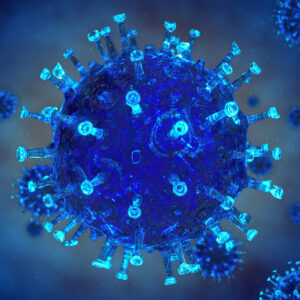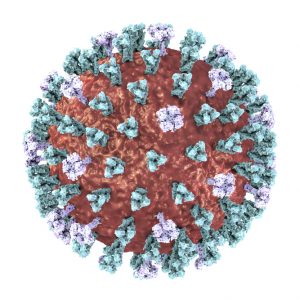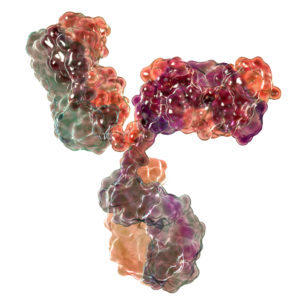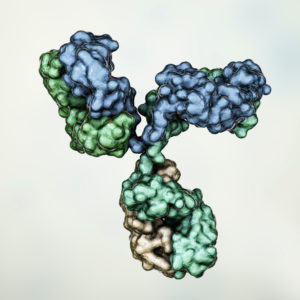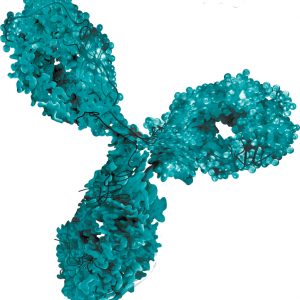Respiratory Syncytial Virus
Respiratory syncytial virus (RSV), now human orthopneumovirus, is a common respiratory virus that usually causes mild, cold-like symptoms. While most of those infected, recover in a week or two, RSV can cause more serious forms of disease in the immuno-susceptible, especially for infants and older adults. In fact, RSV is the most common cause of bronchiolitis and pneumonia in children younger than 1 year of age in the United States.
To support research into RSV infection The Native Antigen Company offers both recombinant RSV antigens and highly specific monoclonal RSV antibodies.
Respiratory Syncytial Virus Background
Respiratory syncytial virus (RSV) is an enveloped, negative-sense, single-stranded RNA virus. RSV belongs to the genus Pneumovirus, subfamily Pneumovirinae and is a member of the Paramyxoviridae family of viruses. Human RSV is a widespread virus that causes more than 30 million new cases of RSV infection each year. Two major antigenic groups of human respiratory syncytial virus have been identified, which are classified as subtypes A and B, with additional antigenic variability existing within each subtype. Both A and B subtypes co-circulate, but reports suggest that one subtype typically dominates during epidemics (Sullender, WM).
RSV primarily causes lower respiratory tract infection in infants and young children. In many cases, the virus causes a mild respiratory illness, though pneumonia and bronchiolitis can develop in children under 2 years of age and in the elderly. In addition, children with pre-existing heart, lung and neuromuscular diseases can also be at risk of developing severe RSV infection, resulting in hospitalisation. In older patients, severe RSV infection may exacerbate pre-existing conditions such as asthma and chronic obstructive pulmonary disease (CDC).
Treatment of severe RSV infection varies, but may involve the use of steroids, antibiotics, or antiviral therapy. Monoclonal antibody therapy is available for the prophylactic treatment of specific high-risk cases, but is expensive and therefore limited in availability (Turner, TL et al). An effective vaccine for RSV is not currently available, but several potential candidates are currently under investigation (WHO).
References
- Sullender, WM (2000). Respiratory syncytial virus genetic and antigenic diversity. Clin Microbiol Rev. 13:1-15.
- Centers for disease control: Respiratory syncytial virus infection (RSV)
- Turner, TL et al (2014). Respiratory syncytial virus: current and emerging treatment options. Clinicoecon Outcomes Res.6: 217–225.
- WHO Consultation on respiratory syncytial virus (RSV) vaccine development
Respiratory Syncytial Virus Antigens
In support of IVD assay development and vaccine R&D studies, we prepare recombinant RSV glycoprotein G in our mammalian cell expression system. RSV gG is the major attachment protein of the virus, mediating cellular entry.
Respiratory Syncytial Virus Antibodies
We are pleased to offer a pair of monoclonal antibodies specific to respiratory syncytial virus, which may be used in the development of immunoassays. Our RSV antibodies are highly specific and do not cross-react with adenovirus or influenza viruses.
Questions?
Check out our FAQ section for answers to the most frequently asked questions about our website and company.

![Influenza B [B/Washington/02/2019] NA Respiratory Syncytial Virus A Lysate](https://thenativeantigencompany.com/wp-content/uploads/2020/12/Coronavirus-45-300x300.jpg)
